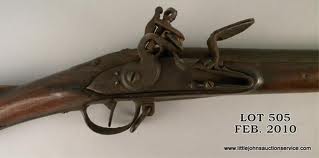How in the world the American rebels beat the strongest military power on Earth is still hard to fathom, especially after reading the wonderful 1776 by David McCullough. Somehow, they managed to repel an enemy that came in waves on a great many ships. The Americans had no ships!
McCullough, a Pulitzer Prize winner, is also that magnificent voice who narrated the Ken Burns classic, The Civil War on PBS.
His book, as its title suggests, focuses on this momentous year where the great Declaration was signed. But it was a mostly horrific time in the fledgling country's history. General Washington and his troops were getting their asses kicked in battle after battle. Almost all of 1776 details how tremendously ill-equipped the colonialists were to wage war, especially against a power like Great Britain. But McCullough does it with style, wonderful narratives and quotations from those laboring on the battlefields.
First off, the colonies had no real army, per se. They were not trained fighters. George Washington had never commanded an army in war before. And, all of the fighters were volunteers! In one chapter, the author describes a long path of blood in the snow left behind by American soldiers who no longer had shoes.
Contrast this to the Redcoats, who were well-equipped, battle experienced and wealthy enough to hire mercenaries from Germany to fight along with them. The Hessians were fierce soldiers who proved to be incredibly cruel, raping and pillaging when having successfully bested the rebels, to the embarrassment and disgust of their British generals and the Crown. Their behavior was so odious the British generals didn't know how to control them.
This is one aspect of the book I especially liked--McCullough's portrayal of events from the British perspective. General Howe had a dual role in the war as both the soldier in charge of bringing these insolent colonialists back in line but also to negotiate peace, if possible. Howe tried on multiple occasions to talk sense to General Washington, but he would hear none of it.
The British soldiers were amazed at these American towns with their bountiful orchards, nice homes, impressive furnishings, etc. They couldn't imagine why they would want to give up this idyllic existence and pick a fight with the nation that made it all possible.
The book also made me wonder what our country would be had there not been such a drive for independence. Would it have been so bad? There were plenty of Loyalists who did not want to engage in this fight, and for good reason. Many were wealthy, established land-owners who had no taste for war and the inevitable bloodshed. Their homes were ransacked and they were forced to flee into the wilds.
McCullough describes the horrific use of bayonets, muskets and canon balls in what often was hand-to-hand combat. Almost unimaginable. The desire to be free was so strong, these volunteer militias were willing to suffer and die in agonizing fashion rather than continue on under British rule.
So how did the rebels win? Only at the very end does the author address the question, with precious little detail. He credits the persistence of the army and General Washington's ability to learn from his mistakes.
Washington also was a revered, charismatic figure who could inspire men to fight, no matter the insurmountable challenges. The rebels knew the country better than the Redcoats and that made it more challenging for Britain to attack. Help from France and the Netherlands also helped, but it sounds like the Americans just stuck it out long enough, outsmarting the Brits with decisive surprise attacks.
In the end, the colonies demonstrated that America was theirs now, and they were willing to lay down their lives to repel invaders.



